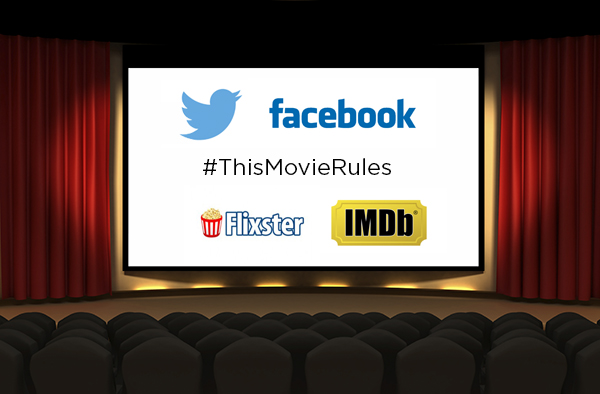M writes on how films use Social Media to create a (mostly false) hype about how good their product is.
We are socially connected with our friends, colleagues, acquaintance and many strangers. These strangers could be anyone: a stalker, an innocent bystander, a brand prowling on your activities and at times, it could be Bollywood. Social Media has been actively used to promote films and ‘engage’ audiences more than ever. This fad started almost two years ago, when filmmakers decided to jump on the Stay Connected bandwagon that picked up momentum almost overnight in our country.
This created opportunities for small mom-and-pop shops to mushroom under the title of Social Media Experts and make quick bucks. Many of them managed to swindle the brands first, and then the filmmakers. Here’s how this works: once the agency is hired, the objective is defined – ‘X’ number of fans on Social Media Portals must be achieved. Then the agency, which works with a vendor, goes all out to ensure that the fan base amplifies daily. The release date of the film arrives and the agency gets paid if they keep its promise.
But how does the agency keep its promise? The vendor hires people to create fake profiles and accounts to ‘Like’ or ‘Follow’ the film page. Of course, there are also some real people who interact with these accounts, but fake profiles are required to fulfil the commitment. This method of ‘engaging’ with the audience is widely used across the fraternity, and constantly enhanced.
Agency services are not limited to merely increasing the fan base. Some agencies, at an additional cost, provide the option of ‘deleting’ negative interactions from Social Media and Video Streaming Sites. When the film fails to please a user, which happens a lot these days, he or she is most likely to leave a negative comment on the film’s page. Now, in a democracy, with Freedom of Speech and all that jazz, this is quite understandable. But it is not acceptable to the filmmaker. So all negative comments are summarily executed the moment they are out.
Sometimes, I feel that filmmakers have their delicate brains wrapped in bubble wrap, to protect themselves from harsh realities. It’s actually quite simple. If you work hard on your product, you should release it with confidence and let the feedback flow. If people hate it, take the hate and make a better film next time. The more you try to protect your film, the more irate your audience becomes.
One particular film star, an A-lister who hasn’t tasted success in a while, was completely anal about the reviews of his film. His film was released during Diwali and the marketing teams, after delegating work to the Social Media Agency with strict instructions to remove every negative comment the moment it was published, were on a long break. The film was touted as a big ticket release owing especially to its special effects.
Bas, the film released and the floodgates opened. The flow of negative reviews was something beyond anybody’s control. The film star was pissed off and a special meeting was called, despite everyone’s holiday. After an hour of futile brainstorming on how to control the damage, a very creative idea was touted: “Team, use your BBM/WhatsApp and personal Social Media accounts to promote the film.” Of course, 20 positive remarks were easily outnumbered by the thousands of highly negative ones, and the final verdict was a ton of unhappiness all around.
The latest innovation in seeding positivity amongst filmgoers takes deviousness to the next level. Agencies ‘gratify’ users who already have a large following to promote a film. These users then regularly talk about the film and how entertaining it is. The followers give credit to their reviews and fall prey to the hype. So the next time you see a first-rate review of a crappy film in your newsfeed, don’t be fooled. It’s time you review who you follow.
Sharp as a tack and sitting on more hot scoops than she knows what to do with, M is a media professional with an eye on entertainment.
(Picture courtesy blog.iwearyourshirt.com)
